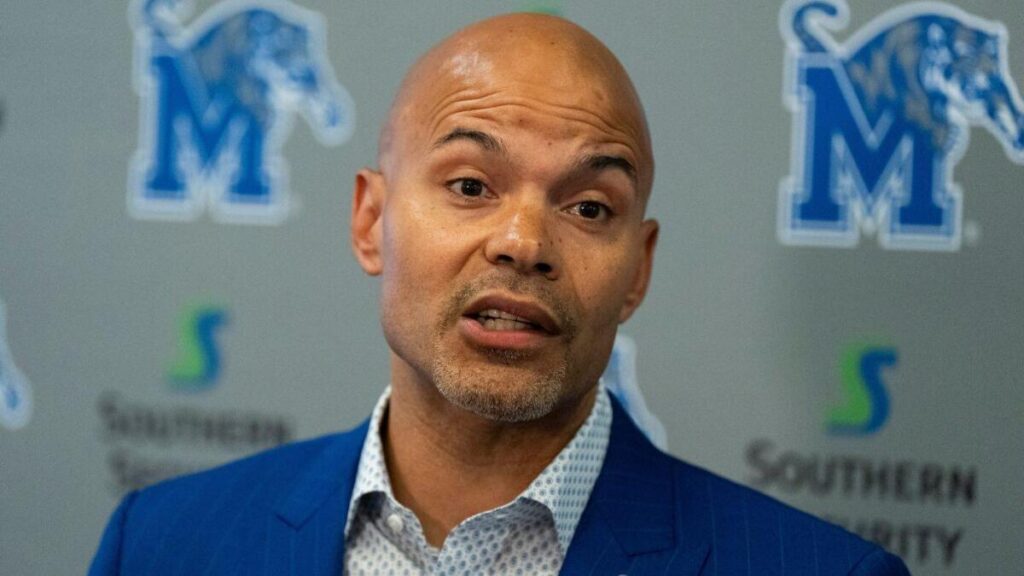Memphis athletic director Ed Scott admits it stung when the Big 12 rejected an unprecedented bid to join the league in July. The ambitious proposal — which included up to $250 million in sponsorship commitments and forgoing revenue distributions for at least five years — was among the boldest yet by a Group of Six program to buy into the Power Four.
“I’m a human being, man. I don’t like being rejected,” Scott said on the Gary Parrish Show. “If I interviewed for a job and they told me no, it hurts. If I said anything different, I’d be disingenuous and that’s just not my style. So that hurt, right? You never want someone to tell you that they don’t want you.”
University president Bill Hardgrave spent more than a year pitching Big 12 leaders on the plan, according to Yahoo Sports, but the board showed no interest when Memphis’ final proposal arrived in early July. For now, the Tigers remain in the American Conference while the Big 12 presses ahead with 16 members.
“The initial reaction was that people were upset because we didn’t get in,” Scott said. “But folks like you started to respond differently and say, ‘Wait a minute. I see what Memphis is doing.’ … As a leader, you have to know when to take it and when to be out front. … My job is to do what’s right for this institution, for the athletic department and the city — even when other people react a certain way. And I think that keeps me grounded.”
Asked directly why the Big 12 doesn’t want Memphis, Scott argued the usual explanations don’t hold up. He dismissed many of the “short-sighted” criticisms tied to the school, pointing out that the football stadium renovation is on time and on budget, Memphis is now an R1 research institution, and the athletic department set a department-wide GPA record last year. On the field, Ryan Silverfield’s team combined 11 wins with the highest GPA in the American.
Scott acknowledged Memphis’ past NCAA issues but said those were resolved quickly under his leadership.
Scott also expanded on why Memphis declined a Pac-12 offer in 2024, which he described as a “bad deal” for the university. The league offered only a fraction of the American Conference’s exit fees and provided limited support for Olympic sports, a package Memphis could not accept.
“The only reason why we didn’t jump at the Pac-12 is because financially it didn’t make sense,” Scott said. “The worst thing I can do is if we make a move and then we’re not successful in that move.”
In Scott’s view, the larger issue is that the Big 12 is still finding its footing after a wave of recent additions.
“If I’m being fair to the presidents and the ADs in the Big 12, they’ve gone through a lot of transition in a short period of time,” Scott said. “There’s eight teams that came into that league, everyone’s hurting for cash and they’re trying to figure out their identity. So I think some of it is maybe not Memphis and some of it is them trying to figure out where they’re at.”
Memphis was one of just seven schools — and the only outside the Power Four — to finish in the AP Top 25 in both football and men’s basketball last season.
“The easiest thing to do in life is achieve something and fall off,” Scott said. “The hardest thing is be consistent. … We’ve got to continue to raise money, get as close to full [revenue] share as we can, and our facilities can now compete with anybody. … Our position is, if they’re not going to let us in now, let’s keep beating them.”
Read the full article here


